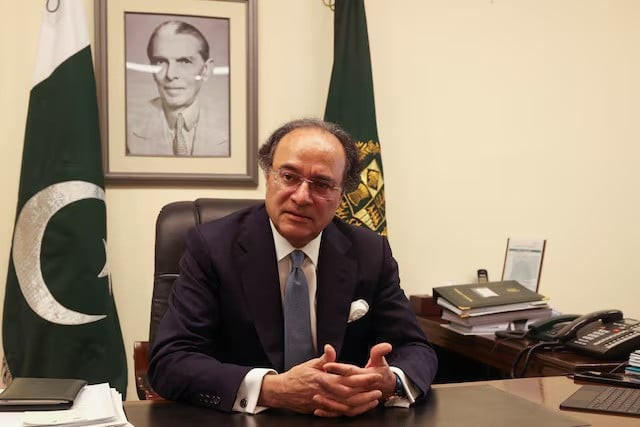Aurangzeb calls for reforms to ensure last EFF with IMF
Stresses on privatisation, export-led growth, FDI for macroeconomic stability

Federal Minister for Finance and Revenue, Senator Muhammad Aurangzeb, on Thursday, reiterated the necessity of structural reforms to ensure the Extended Fund Facility (EFF) with the International Monetary Fund (IMF) is the country’s final programme. He highlighted the importance of privatisation, export-led growth, and foreign direct investment (FDI) for sustainable macroeconomic stability.
Addressing the Ground-Breaking Ceremony of the Head Office Building of the Securities and Exchange Commission of Pakistan (SECP), the minister announced that a Staff Level Agreement (SLA) has been signed with the IMF and will be submitted to the fund’s board for final approval. “Under the fund umbrella, it is not only about receiving the fund but ensuring this time we implement structural reforms,” he remarked.
The minister stressed the urgency of this agenda, stating, “If we are to make this the last IMF programme, we must advance reforms in taxation, energy, and state-owned enterprise (SOE) privatisation because we no longer have the space to delay.”
He pointed to Pakistan’s improved rating by Fitch, an international credit rating agency, and the policy rate reduction by the State Bank of Pakistan (SBP) as indicators of macroeconomic stability under Prime Minister Shehbaz Sharif’s leadership. The economic team will continue to pursue this agenda, aiming for stability to lead to growth and permanence.
Discussing the role of the private sector, the minister revealed that the cabinet committee on SOEs decided to transfer all public sector insurance companies to the private sector. “There is no reason for the government to retain these entities. Even strategic functions will be managed by the private sector, with the government providing policy framework and continuity,” he said. He urged the private sector to lead the country, particularly the entire insurance sector.
To ensure the current IMF programme is the last, the minister highlighted the need for export-led growth and attracting FDI specifically for export-oriented industries to avoid currency mismatches caused by foreign borrowing. “If we borrow from abroad, it should be for projects that generate foreign currency,” he stated.
He underscored the importance of accessing international capital markets to bring capital into the country, reducing dependence on banks by both the government and the private sector. Diversifying the funding base through equity and debt markets will bring modernity, efficiency, and transparency, with the SECP as the guardian of public interest, ensuring fair, transparent, and accountable markets.



















COMMENTS
Comments are moderated and generally will be posted if they are on-topic and not abusive.
For more information, please see our Comments FAQ